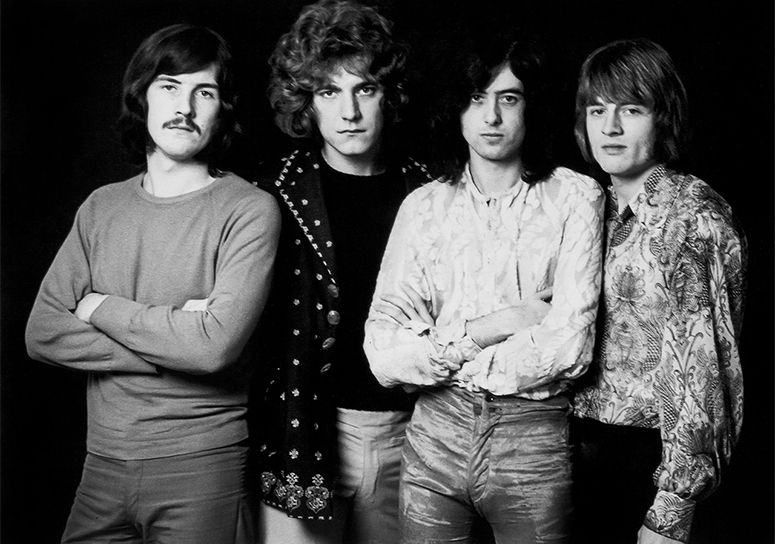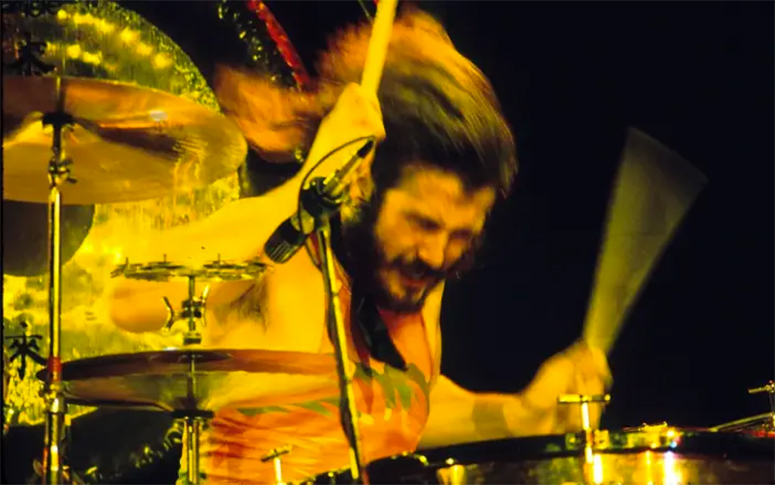Led Zep delivers the goods onstage in Netflix doc
On reflection, it’s not strange that the documentary Becoming Led Zeppelin on Netflix opens with early 20th-century footage of WW2 bombings of Europe and the Hindenburg disaster of 1937; looking back at archival footage and early days is what this doc is largely about. Well, half of what it’s about, actually: the other half is about first-rate glimpses of a band blasting their way through America and sleepy UK towns with high-voltage blues-rock that nobody was really ready for.
But what it plays like is those documentaries you find on The History Channel, with old black-and-white footage interspersed with octogenarian war veterans talking with great emotion about “those days.” Which of course, is fascinating, as a museum-worthy exhibit to depict history. But not exactly a lightning-and-thunder combo to depict one of the most enigmatic bands to barnstorm their way into rock history.

For a more, let’s say, mythological portrait of Jimmy Page, Robert Plant, John Paul Jones and John Bonham coalescing via the quicksilver forge of destiny’s smithy into some mighty entity far greater than the sum of its parts, you might want to read Stephen Davis’ 1985 bio Hammer of the Gods, apocryphal or not. Better stories, for one.

Becoming Led Zeppelin is rather a wistful look back by the surviving band members (Bonham died in 1979, effectively ending the band’s recorded output), and this has value as a document of veterans describing what they saw in the war, while carefully leaving out all the naughty bits about venereal disease, war atrocities, infidelities and the like. It sounds a little squeaky clean, and one might hanker to hear from Mr. Page, for instance, about why he was so fascinated with Alistair Crowley that he bought one of his mansions; or about the demons, if any, that might have plagued John Bonham before his early death.

We do hear a lot about their mutual respect and love for one another, which is nice, but not particularly the stuff of rock ‘n’ roll legend. The filmmakers have been granted “unprecedented” access to the three surviving band members, and that typically means they’ve decided to preserve their legacy in the safest light possible; not by spilling chismis and rude stories. Class versus crass, in other words. It could be that Led Zep merged so perfectly as a four-part entity that they could do their work—i.e., be rock legends onstage—then go off to their separate, contented domestic lives without a hitch or a dramatic blip. If this is so, it bucks the trend of most documentaries these days, which tend to coalesce around interpersonal drama, or some kind of personal crisis leading the subject to transcend through some act of pure genius. (A look at the Page-Edge-Jack White doc It Might Get Loud offers an interesting comparison.)

This is not that. Yet if Becoming Led Zeppelin—importantly, shot for IMAX screens—opts for a nostalgic view of Ye Olde Days of Heavy Metal, eschewing pretty much any drama whatsoever, it does include some amazing live footage of the band finding its legs in Copenhagen, in Germany, and other thunderous locations across the US, where they were more eagerly lapped up by beer-chugging stoner crowds, leading us back to a triumphant UK return, where a concert in London’s Earl’s Court (Page’s family were present) feels like some kind of validation on home turf.
The live footage is the real point: we see the band grow into something HUGE almost overnight. They all reflect upon how big they knew their sound was. Seeing the band command the stage, get loose and turn into some kind of telekinetic entity before our eyes is the real reason to watch this documentary on Netflix; not the languid reminiscences.


